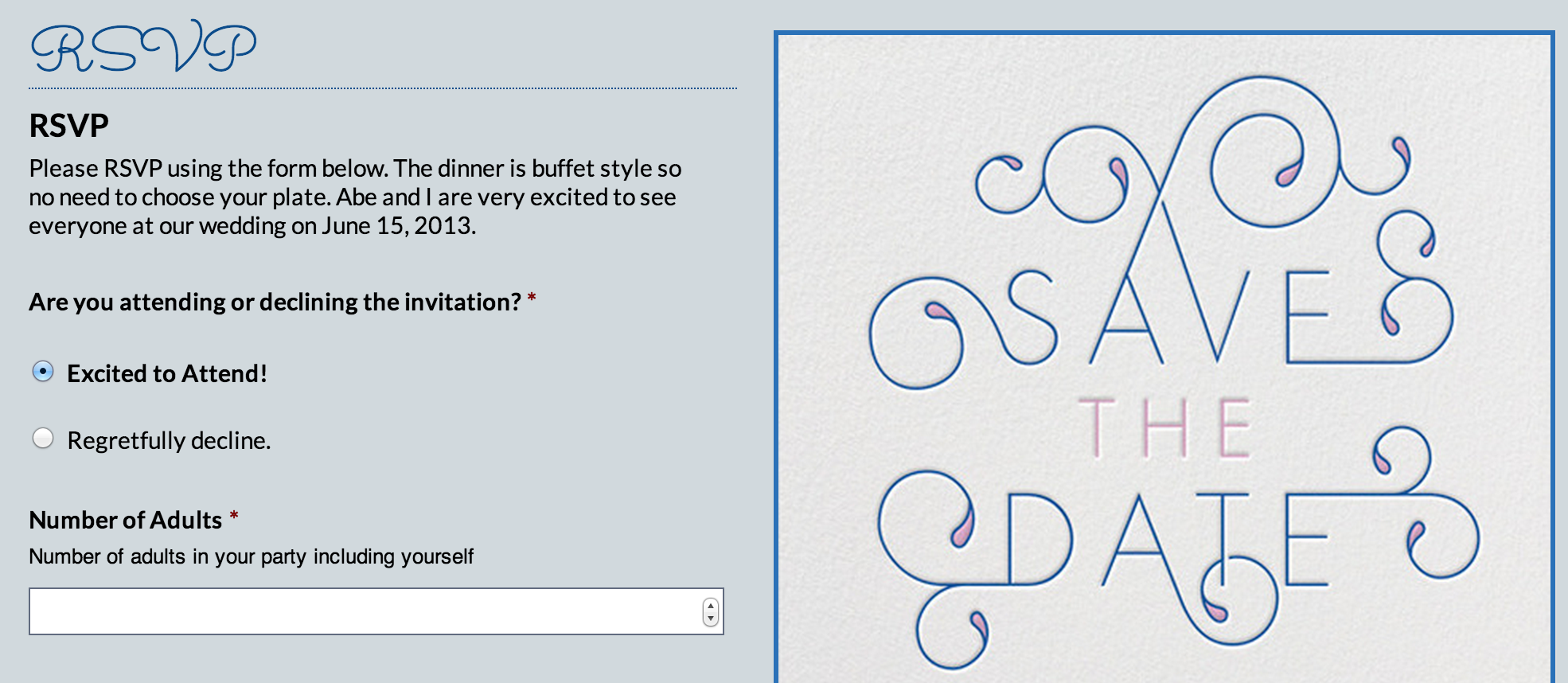Lessons Learned from Planning a Wedding in the "Digital Age"
For the last six months or so, my life has been consumed by non-ruby stuff. In June I got married and during the 10 months leading up to the event, the time I would have otherwise devoted to side projects and ruby learning, was entirely consumed by what my husband and I worked hard to make a very smooth and tech-savvy process. We learned many lessons along the way, and I have decided to share some words of wisdom with other technology hungry folks who may be planning a wedding as well.
Lesson 1: RSVP Cards are Necessary and a Website Form Doesn't Cut It
I thought I would save a few trees, spend a little less money on stamps and RSVP cards so I decided to make an online form for the people who had a computer and knew how to use it. I figured it would make it easier for my family and friends to RSVP and their card wouldn't get lost in the mail.
This brought up a few issues I didn't anticipate. First, my friends and family couldn't remember that they didn't RSVP yet because there was no card to send in — they had nothing to sit on their desk indicating that they hadn't RSVP'd yet. This memory lapse only got worse the more they procrastinated. Secondly, the form led to confusion about who was actually invited. Because the form tried to lend itself to all types of guests, they didn't know if they could have plus ones, etc.

If you do use an RSVP form in lieu of RSVP cards, make sure to send them back a "thanks for RSVPing" so they're more likely to remember they already RSVP'd or add a reminder email for those who haven't filled out the form yet.
Lesson 2: Don't Give Your Email Address or Phone Number to Any Company Ever, Unless They Are One of Your Vendors
This one is just a good ordinary life lesson. Of course you can give your information to your vendors, but only after you've decided who your vendors are so they can't contact you when you ultimately decide to go in a "different direction".
I found that large corporate vendors tend to hire people who work only on commission and are desperate to make some kind of sale. As a result, I got countless phone calls and emails from people I never asked to get information from.
Many wedding sites say in their "Terms" (TheKnot for example) that even if you opt-out of them selling your information, they might do it anyway and the only way to stop them is to contact them directly. It's really disheartening that companies conduct themselves in this way.
Lesson 3: Definitely Use Trello or Another Project Management Tool for the Planning Process
Using Trello for wedding planning was one of the best decisions we ever made. Abe and I used it to assign each other tasks (ex. "Please call florist."), make sure we knew when deposits were due and who we had already paid. We even used it to organize our seating chart. Each family member/friend was assigned a color based on the side of the family they were associated with. This made it really easy to know who could sit with who.

Trello has a really great drag and drop interface that makes it easy to organize projects or weddings. Abe goes into greater depth about this on his blog
Conclusions
Planning a wedding was stressful, but well worth the effort. I hope these tips help you plan your future wedding. Enjoy!
Also awhile back I added images to my blog, yay! I haven't gotten around to writing a post about it but hopefully pictures will become more common in my posts now that my life is returning to normal.